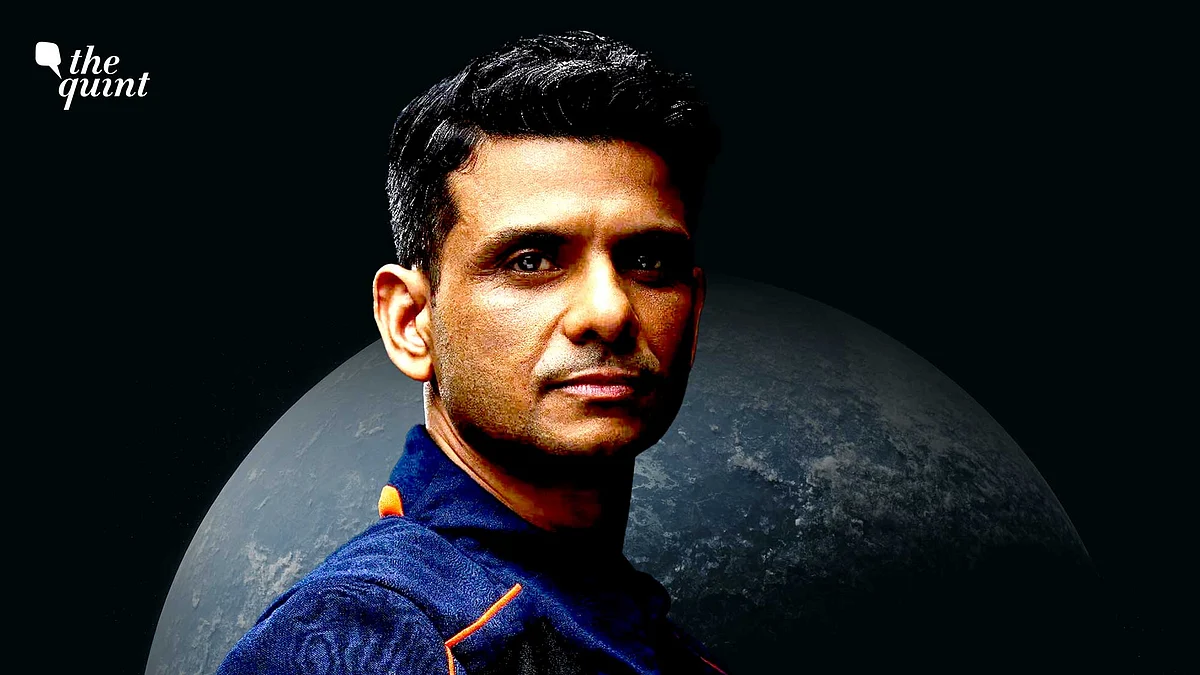
India’s Leap to the Stars: Shubhanshu Shukla and the Strategic Space Race
Shubhanshu Shukla is an appropriate role model for GenNext, otherwise obsessed with cricket celebrities and actors.

advertisement
India achieved a historic milestone on Wednesday, 25 June, when Group Captain Shubhanshu Shukla, aboard the Axiom-4, lifted off into space towards the International Space Station (ISS), becoming the first Indian to embark on this platform.
Axiom-4 is a private spaceflight operated by Axiom Space along with SpaceX and the US National Aeronautics and Space Administration (NASA), with India’s Indian Space Research Organisation (ISRO) also a partner in the current endeavour.
Yuri Gagarin, from the former Soviet Union, became the first human being to enter space on 12 April, 1961. Shukla is the 634th astronaut to reach space. Over the past six decades, both unmanned spacecraft and manned space stations have enhanced mankind’s understanding of the vast expanse beyond the earth’s atmosphere—generically referred to as space.
From Oceans to Orbits: The Strategic Value of Space
At a broad strategic level, space today can be compared to the vast expanse of the global oceans before the advent of sail. Prior to the first trans-oceanic voyages by a band of intrepid sailors in the 15th century, the oceans were mysterious and inaccessible to mankind. The seas close to the coast were the only areas of maritime exploration and related connectivity.
The age of discovery, enabled by sailing ships, associated with Vasco de Gama and Christopher Columbus, slowly allowed the oceans to be navigated with confidence and technological proficiency. A new era was born, with the colonial powers straddling the global commons.
Today, space as a domain is akin to the oceans of old, with a scramble among the more technologically capable and powerful nations, to inhabit and control space to further their national interest.
From Cold War Rivalry to Private Space Race
During the Cold War decades, the US and the former Soviet Union were the major space powers and their satellites ushered the first human punctuation of space. Today, technology has transformed the entire spectrum of how space is perceived, and one big change is the entry of the private-sector entrepreneurs into what was once a state-dominated activity.
The competition in space is intense among the major powers, since the new domain to gain and consolidate long-term strategic advantage is in the maritime-space-cyber (MSC) continuum—the new global commons.
The US and China are the most capable in terms of technological competence and funding support, with the US allocating almost $80 billion to its space programme in 2024. A distant second is China, which has invested $20 billion, while India ranks ninth globally with an allocation of $1.9 billion.
China’s Space Strides and India’s Next Steps
Under President Xi Jinping, China has made impressive strides in space exploration and utilisation. Beijing has acquired a vibrant space launch capability, has the largest number of orbital launches annually, and maintains four spaceports.
While India’s profile in space related activities is modest compared to the major powers, ISRO is acknowledged by the peer group for its low-cost and innovative techno-commercial accomplishments. Group Captain Shukla’s role in Axiom-4 is distinctive, and as the mission pilot, he symbolises India’s aerospace proficiency and will carry out some seminal research experiments.
The seven cutting-edge experiments planned for this mission will also help prepare for India’s Gaganyaan Human Spaceflight Programme. These include studies in:
Biology
Space agriculture (growing superfoods like ‘moong’ and ‘methi’)
Biotechnology and health sciences (encompassing muscle loss, mental health, etc)
Microbial behaviour in microgravity, involving tardigrades, a species also known as water bears. They are tiny microscopic creatures that live in various environments, including water and moss. Researchers are currently studying proteins produced by tardigrades for potential benefits in human medicine, such as protecting healthy cells during radiation therapy.
A Strategic Wake-Up Call
Shukla’s epic journey carries the “hopes and dreams of a billion hearts,” as he himself stated.
It is hoped that his mission will inspire young Indians to pursue careers in science, technology, and space exploration. His personal trajectory is that of a Lucknow schoolboy inspired by the 1999 Kargil War to join the NDA and later the air force, where he qualified to become a coveted test pilot. Now an accomplished astronaut, he is an appropriate role model for GenNext, otherwise obsessed with cricket celebrities and film actors.
India needs to be cognisant of the emerging geo-political competition among the major powers (the US and allies vs the China-Russia dyad) and the critical role that the new MSC continuum, and space in particular, will play.
India has no dearth of raw human potential, but this young demographic needs to be educated and trained in the appropriate manner, if a promising gene-pool is not to become the equivalent of ‘hewers of wood and drawers of water’ in the 21st century.
Currently, the US and China are the heavyweights in the space-cyber domain and are seeking to position themselves as the top-dog nations that will set the rules for other nations to comply with. The manner in which the global nuclear domain was sought to be managed is illustrative.
If India aspires to be among those nations who will be part of the management of the new global continuum, building on Shukla's accomplishments in a resolute manner is imperative. Perhaps more funding for R&D over statues?
India was once colonised because it failed to appreciate the strategic importance of the maritime domain. This is a lesson we must now internalise in relation to space.
(C Uday Bhaskar is a leading expert on strategic affairs. He is currently Director, Society for Policy Studies. This is an opinion piece. All views expressed are the author’s own. The Quint neither endorses nor is responsible for them.)
- Access to all paywalled content on site
- Ad-free experience across The Quint
- Early previews of our Special Projects
Published: undefined